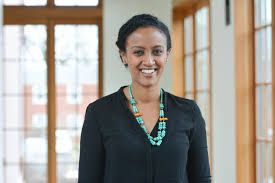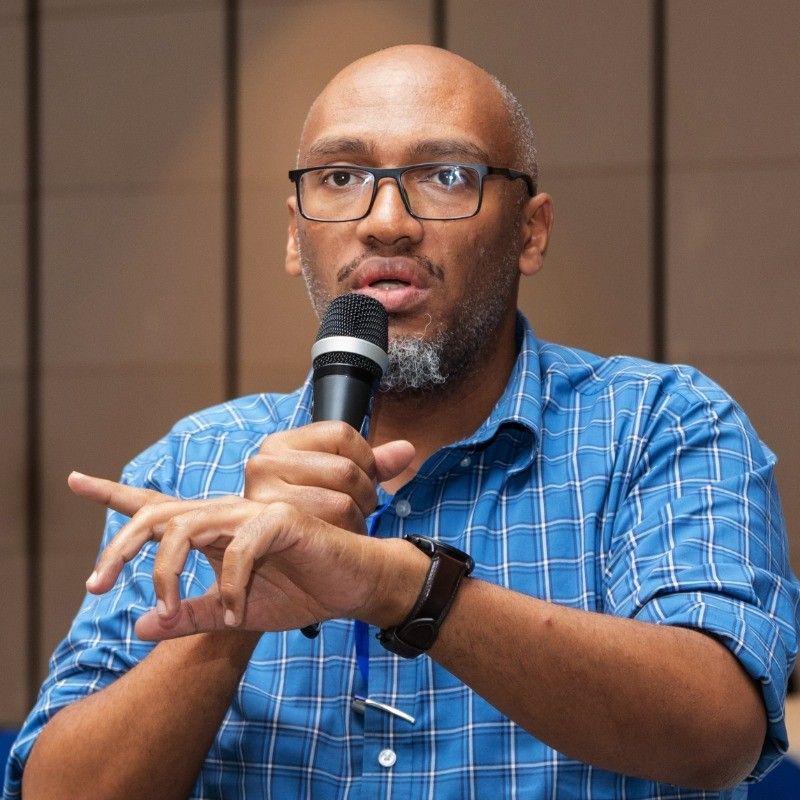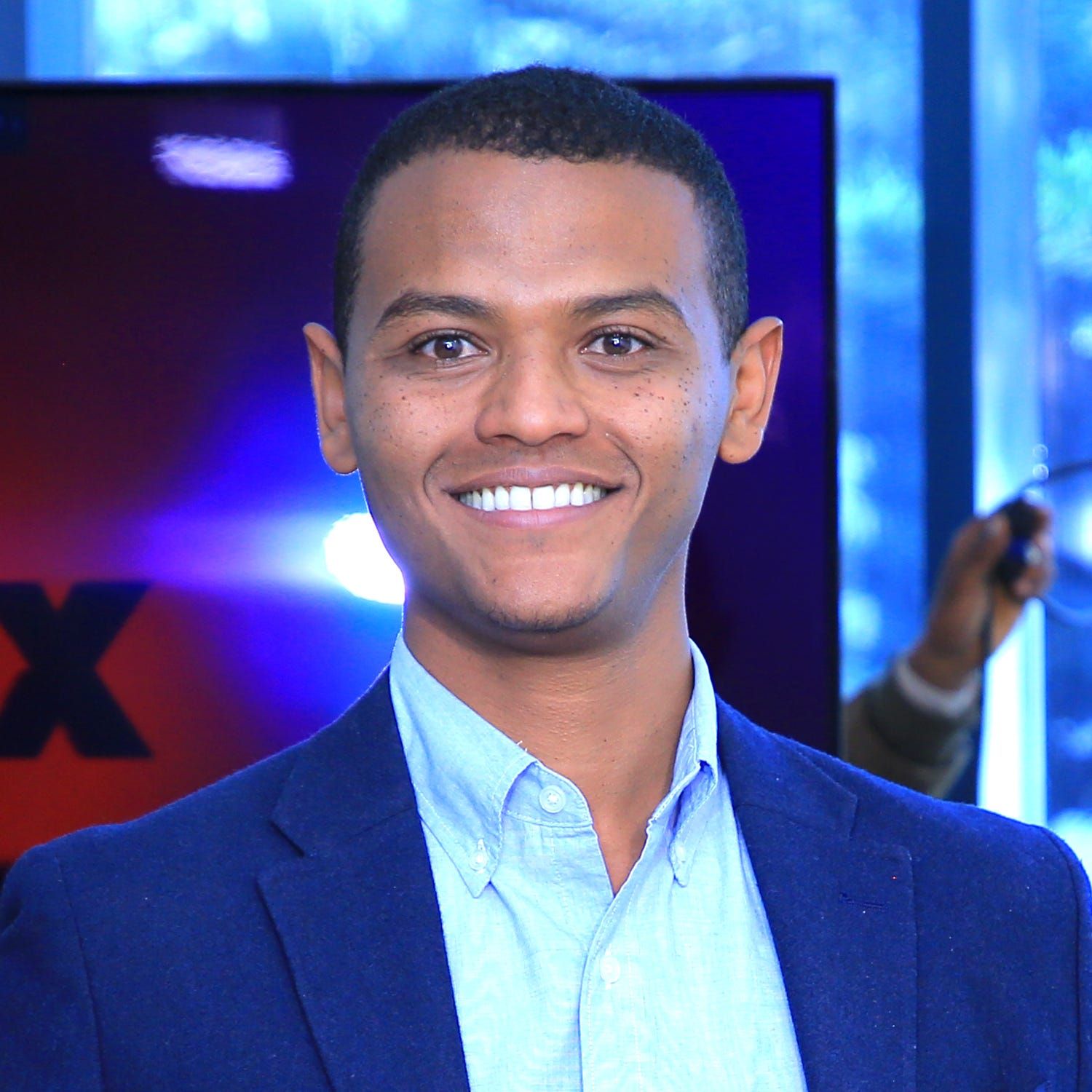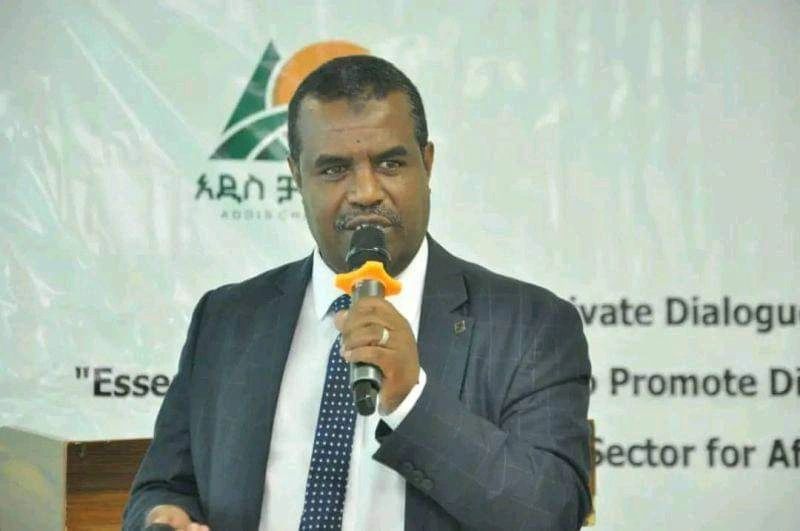Progress for 0 ad
Progress for 1 ad
Progress for 2 ad
Progress for 3 ad


Etenat Awol
Addis Ababa, Ethiopia

After thirteen action packed months, Ethiopians are welcoming a new year armed with new hopes and bracing for new hurdles. The past year (2017 E.C.) was one of fundamental policy pivots, novel challenges and long-awaited progress for Ethiopia’s entrepreneurs. After more than five years in the making, the Ethiopian Startup Proclamation was finally ratified by parliament, the central bank began accepting applications from foreign banks and a critical personal data protection law came into force. The year ended with a historic capstone as Ethiopians witnessed the inauguration of the Grand Ethiopian Renaissance Dam after fifteen years and nearly $5 billion financing sourced domestically.
But what do these changes mean for the year ahead? To take stock and look forward, we asked community organizers and association leaders about their reflections of the past and their wish list for 2018 E.C.
“Without digital literacy, millions of Ethiopians risk being left behind,” warns Baheru Zeynu of the Digital Transformation Ethiopia Association, invoking the spirit of the literacy campaigns of the 1970s. Helinna Ayalew, co-creator of the Ethiopian EdTech Community, hopes this will be the year local EdTech startups gain official accreditation, so their work is formally recognized and trusted. For Nebiyou Yirga, president of the Ethiopian Association of Startup Ecosystem, the demand is urgent: the startup proclamation must not remain ink on paper, it must be put into action. And for Kal Kassa, a Bitcoin educator, the vision stretches further still: to see bitcoin mining revenues not only fuel data centers but also finance new hydropower projects.
Helinna Ayalew: Ethiopia Edtech Community 
Shega: How has Ethiopia’s EdTech scene evolved over the past one year?
Helinna: It’s been a busy year. We’ve continued our regular monthly meetups and grown our membership significantly we’re now at over 300 active members on our mailing list, with strong attendance at community meetups.
One highlight was the inaugural EdTech Week, organized by Reach for Change (RFC), one of our community members. It was a high-level event that brought visibility to the sector. Overall, EdTech in Ethiopia has gained much more awareness and interest, and we’re excited to keep building on that momentum.
Shega: Over the past year, what challenges have held back promising EdTech solutions from scaling wider?
Helinna: What’s holding back impactful EdTech solutions from scaling isn’t something unique to just this past year these are more systemic issues. Policy frameworks, connectivity, and limited collaboration have all been hurdles.
But we’ve also seen progress. Engagement with government has become more regular and constructive, and collaboration within the ecosystem has improved. There are new partnerships and ventures emerging, and as our relationship with government strengthens, we’re seeing more openness to understanding the needs of the sector and creating the right policy environment.
Shega: As we step into the New Year, what’s on your EdTech wish list and how should government and the private sector team up to make it real?
Helinna: I do have a long wish list (a long tender Laugh) from a government side, we’d love to see official accreditation or recognition for EdTech companies, where content can be reviewed, certified, and approved.
We’d also like to see stronger coordination between government entities, which would help us identify where we can make the most meaningful contributions.
When it comes to government and the private sector, I hope we can keep building on the foundation of trust and mutual support we’ve established. There are many in the private sector who are eager to contribute to education, but ultimately, government is the custodian of education, and we must operate within the parameters it sets.
Shega: On a personal note, how do you celebrate the Ethiopian New Year? You mentioned you’re in the US as we speak, but if you were in Ethiopia, what would it look like? do holidays ever feel like time off, or does work still creep in?
Helinna: I usually celebrate the New Year in the typical way: eating Doro spending time with family, checking in with friends and loved ones, and taking the chance to reflect and restart with renewed energy for the year ahead.
I try not to think about work during holidays, though sometimes it inevitably creeps in, especially when working with international partners. Our calendars are different, but I try to mark Ethiopian holidays and try to disconnect from work.
Nebiyou Yirga, General Manger: Ethiopian Association of Startup Ecosystem

Shega: Looking back, what were the toughest challenges member startups had to wrestle with this past year?
Nebiyou: To be honest, we haven’t really asked each member to single out their toughest issue. Our members are diverse there are e-commerce startups, accelerators, and so on so it’s hard to point to just one challenge. If I had to pick though, I’d say policy has been a fundamental challenge.
Even though the startup proclamation has now been ratified, the lack of a clear framework has endured a source of real hurdles with the consequence still being felt by our members. It took over five years to get ratified, and while it’s a big step forward, it will take time to see its impact.
For example, many of our members had to register as PLCs because there wasn’t a defined legal category for startups. This lack of recognition affected funding, tax, and other support mechanisms. So, the absence of a formal proclamation was one of the core challenges our ecosystem faced.
Shega: How do you hope the implementation of the startup proclamation will help Ethiopian startups in the coming year?
Nebiyou: The enactment of the startup proclamation means startups can now officially register and gain legitimacy. With that both accountability and responsibility will come. For instance, if a startup wants to access funding, the policy will be able to decide whether it qualifies or not.
One of the most promising aspects is the proposed establishment of a government-backed fund, which would be crucial since startups often struggle to secure funding without legal recognition. The proclamation is expected to provide tax holidays, a clear legal identity, and other incentives. Overall, it would give startups a framework similar to other sectors, helping the ecosystem mature.
Shega: If you could erase one policy or ecosystem challenge from 2017 EC, what would it be?
Nebiyou: That’s a tough question. It’s hard to pinpoint a single policy or rule that could magically fix everything, because so many challenges are interconnected. But if I had to imagine “one magic solution,” I’d say it would be access to patient capital funding that’s invested today but repayable over five or ten years, not something that has to be repaid immediately. That kind of support would go a long way in addressing one of the ecosystem’s biggest barriers.
Shega: What’s your wish list for Ethiopia’s startup scene in the year ahead?
Nebiyou: My wish for the year ahead is to see the Startup Proclamation fully implemented as law so that members can access funding. I’d love to see 50 to 100 startups emerge this year. Beyond that, I hope to see Ethiopian startups competing globally, like BetterAuth that would be an amazing milestone for the ecosystem.
Shega: On a lighter note, how do you celebrate the New Year, do you ever think about work during the holidays?
Nebiyou: How I celebrate the New Year really depends on the year and the situation. For example, this year I’ll be meeting some friends to celebrate. These are people I met while studying abroad during COVID-19 five years ago. They made me feel at home when I was away, and I’ll be spending the New Ethiopian Year with them, enjoying their company and reflecting on the year. And Holidays are holidays, I never think about work during them.
Kal Kassa: Blockchain & Bitcoin Mining Community

Shega: Looking back, how has Ethiopia’s bitcoin mining and blockchain scene changed over the past year? What were some of the wins and challenges?
Kal: Bitcoin miners in Ethiopia had generated USD 55m in annual revenue for Ethiopian Electric Power (EEP) last year, but this current year annual revenues are now USD 220m.
The blockchain community also has a better understanding about the practical use cases of bitcoin and stable coins, while staying more cautious about initial coin offerings and meme coins that add little to no value.
Shega: With the recent policy changes, especially the freeze on issuing new mining licenses, what do you expect will happen in the year ahead for both those looking to invest and those who already hold a permit?
Kal: State Minister of Finance Eyob Tekalign (PhD) has clarified that Bitcoin miners remain welcome in Ethiopia, provided they use stranded energy power that would otherwise go unused. Thus, I envision there will be more business licenses for additional bitcoin miners soon, but the capacity of their Power Purchase Agreements (PPAs) will likely decrease from 50- 150 megawatts to just 5- 25 megawatts.
Shega: If you had a crystal ball (or a blockchain oracle) what would be your wish list for crypto and mining in Ethiopia this year?
Kal: My wish list for bitcoin mining this coming year is for the industry to contribute more than USD 500m in revenue to EEP, further making use of stranded energy and supporting additional energy investments such as the Koysha Hydropower Project.
Shega: And lastly, how do you celebrate the New Year? Be honest, do you check your crypto balance to celebrate wins, or do you just let the charts do their thing?
Kal: I am celebrating this New Year's Eve with my wife and daughter, we are enjoying a home cooked meal and watching an Amharic language drama. I rarely check the price of bitcoin... it's just money.
Baheru Zeynu: Digital Transformation Ethiopia Association (DTEA)

Shega: What were some of the wins and setbacks for your association Digital Transformation Ethiopia Association (DTEA) in the past 12 months?
Baheru: One of our biggest achievements was the endorsement of Ethiopia’s national e-commerce strategy and the establishment of a Digital Transformation Council, led by the Ministry of Trade and Regional Integration.
We also saw tangible progress, like Ethio Post rolling out affordable home-to-home delivery at only 50 Birr, which strengthened last-mile logistics. On the payments side, our advocacy around digital finance led to more recognition and adoption.
Internationally, we helped bring Alibaba’s Netrepreneur program to Ethiopia the first of its kind in Africa and have since trained 60 entrepreneurs. In September, Ethiopia hosted the Alibaba AGI Summit, and Addis Ababa became home to an AGI talent development hub. We also played a role in facilitating AliExpress’s entry into Ethiopia, marking an important step toward global E-commerce integration.
On setbacks the biggest frustration was with AliExpress. We worked hard to convince Alibaba that Ethiopia was ready for cross-border e-commerce and that Ethiopians should be able to transact in birr. But the National Bank of Ethiopia blocked the initiative, claiming it “lacked clear information.” This was a missed opportunity, forcing many Ethiopians to continue relying on informal payment platforms like Binance and Bybit for cross-border trade.
Shega: In what ways did your association influence policies or infrastructure for digital growth?
Baheru: Our role combines both technical advisory and advocacy. On the technical side, we are members of several government committees and provide input on strategies and draft laws. For example, we played a significant role in shaping and pushing the Personal Data Protection Proclamation, which is ratified this past Ethiopian year.
On the advocacy side, we pushed for the startup proclamation and contributed to the government’s review of the Digital Ethiopia 2025 strategy. The fact that the government has allowed us to review seven different policy areas shows the level of trust and influence the association has built.
We’ve also consistently advocated for infrastructure expansion, urging Ethio Telecom and Safaricom to improve connectivity and inclusivity, especially in rural areas where digital awareness and access remain limited.
Shega: Looking ahead, what should Ethiopia prioritize in 2018 EC to truly accelerate its digital journey?
Baheru: Ethiopia is moving closer to integrating with Africa’s continental trade framework (AfCFTA) and joining the WTO. That means cross-border e-commerce should be a national priority not just as consumers, but also as sellers.
We must improve digital infrastructure. Many areas still suffer from weak or no internet access, and affordable smart devices must be made available. But just as important is digital literacy. We cannot have transformation if citizens don’t know how to navigate the digital economy.
I often think back to Ethiopia’s Adult Literacy Campaign of the 1970s, when university students were mobilized to teach rural communities to read and write. We need that kind of national-scale initiative for digital literacy today. Everything is going digital, and without basic skills, millions of Ethiopians risk being excluded from the economy.
Shega: And finally, I know you’re currently in China representing DTEA at the Second International Civil Society Solidarity Conference on the Global Development Initiative. But back home, how do you usually celebrate the New Year?
Baheru: Enkutatash is one of my favorite holidays. I always celebrate it with my family. It’s a time for us to plan new things, wish for new opportunities, and reflect on the past year. For me, it’s also a moment to think about my responsibility as a citizen and what I should contribute to my family, my community, and my country in the year ahead.
👏
😂
❤️
😲
😠

Etenat Awol
Etenat holds a degree in Journalism and her master's in Public Relations. Previously, she served as a university lecturer and has five years of experience in communications, media, digital marketing, and consulting.
Your Email Address Will Not Be Published. Required Fields Are Marked *